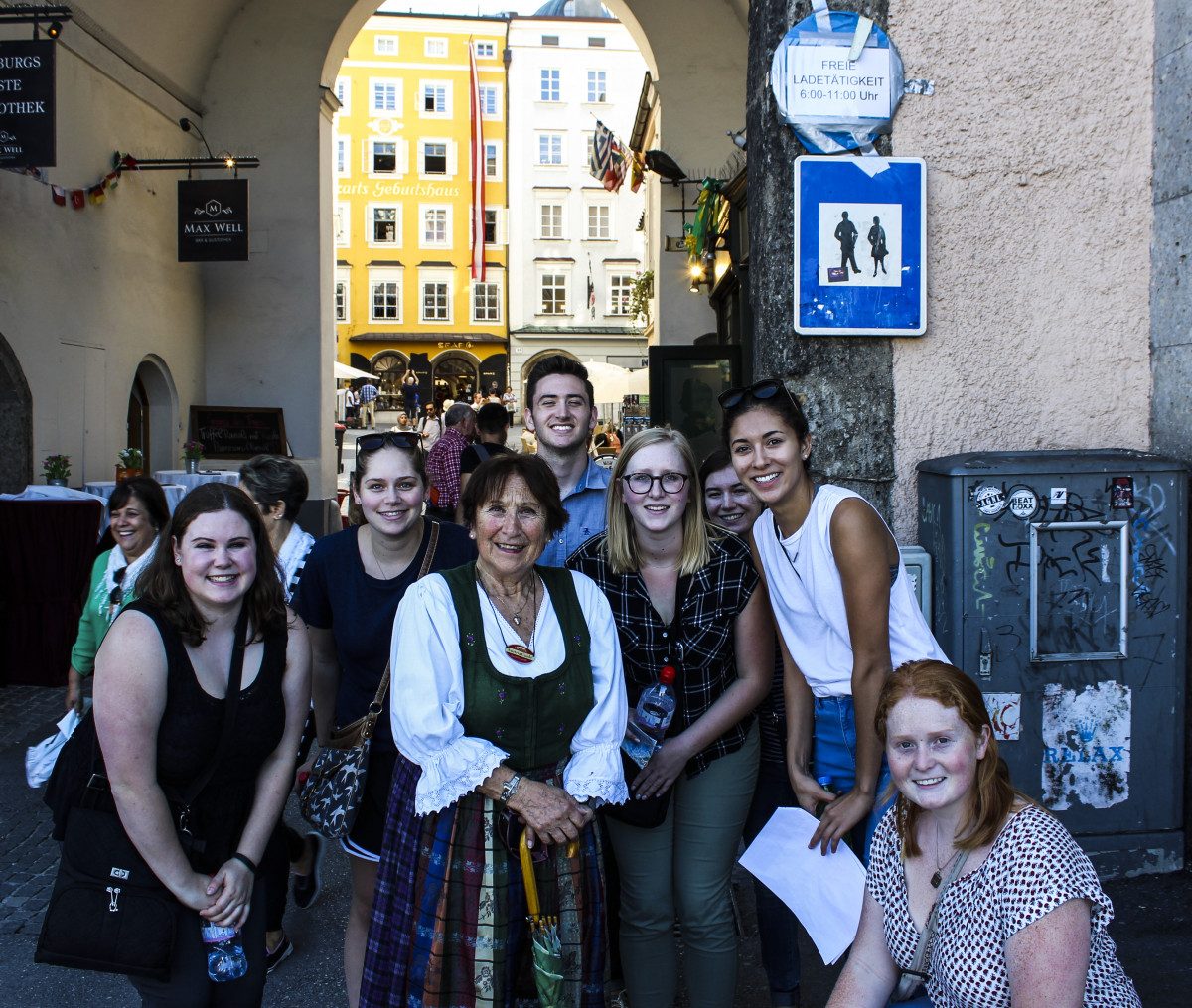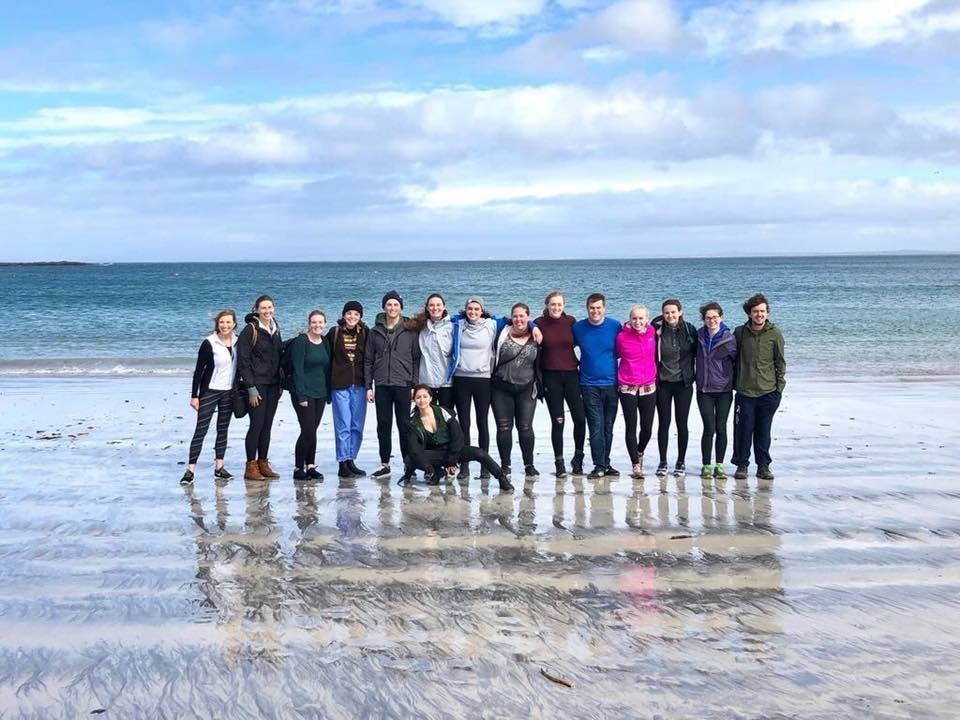Let’s talk about studying abroad! Especially if you’re new to the UP community, here’s what you need to know.
Here’s a few quick facts about the UP study abroad program:
- About 1/3 of UP students will study abroad before they graduate.
- The most common time to study abroad is during your student’s second year at UP.
- Everyone can go abroad! We offer programs to suit every major or academic interest. Most of our programs allow your student to use their scholarships and financial aid.

As Orientation weekend nears, the entire University of Portland community is ready and excited to welcome your students to The Bluff! The transition to college life can be a big adjustment and your student will likely spend the first few months finding their place and making a home at UP. But here in the Studies Abroad office, we want you and your student to also begin imagining adventures beyond The Bluff–maybe even thousands of miles away!
Studying abroad can be a very powerful experience that often helps students develop independence, confidence, problem-solving skills, flexibility, cultural sensitivity, and much more–and that is just from the experiences they will have outside the classroom. In the classroom, they are able to participate in hands-on, experiential learning in a way that would be impossible back here on The Bluff. Imagine fulfilling their Fine Arts requirement by taking an Art History course on-site at the Vatican in Rome!

The most popular time to study abroad is during your student’s second year at UP. Many of our programs are designed to help UP students complete Core Curriculum requirements with classes in History, Theology, Social Sciences, Fine Arts, and more. A few programs are major specific, but most are open to any major and are designed to make sure your student will stay on track to graduate within four years.
Our programs are competitive. Many of the programs we offer have a set number of available slots and there is not always room for additional students. We evaluate each student’s application holistically, taking into consideration their essay responses, their GPA, recommendations from their academic advisors and RA, and their conduct record on campus. Some programs are more popular than others are and we cannot guarantee that your student will be accepted to their first program of choice, even if they are a qualified applicant. It is always a good idea to have a backup program in mind. If your student is qualified but does not get into their first choice, there is almost always another suitable option available if they are flexible.
Applications must be submitted this year to go abroad next year. Applications for Summer and Fall 2020 programs are due October 15, 2019. Spring 2021 applications are due February 1, 2020. This early deadline is required because we spend a lot of time making sure our students are ready to go abroad. Students will participate in almost a full semester of pre-departure preparations prior to leaving for their program of choice. For summer and fall semester programs, the pre-departure process will take place during the spring semester preceding. Pre-departure preparations for the spring semester programs takes place during the fall semester before.

Many of our students have never been abroad before and we work to make sure that they (and you) feel confident throughout the entire process. We expect the students to take responsibility for their own experience, though we also take care to provide all of the necessary details and support they need along the way. Please encourage your student to come in for an advising appointment or attend the Studies Abroad Open House on Wednesday, September 4 from 5:00–8:00 p.m. We will have representatives and former student participants from every program to answer questions and talk about their experiences. There will also be representatives from most of the different schools on campus and someone from the Financial Aid office to answer questions as well.
Our program fees are almost the same as the cost of a semester on campus and include tuition, housing, on-site support, activities, excursions, and international health insurance. (Flights to and from the US are not included.) These items are all bundled together into one single program fee and cannot be separated or delineated. Additionally, students cannot opt out. Everything listed above is required–including participation in all excursions and enrollment in international health insurance. Our semester programs also include most meals, while our summer programs include access to fully equipped kitchen facilities for all students. Some programs include dorm or apartment-style housing with roommates and resident directors; some programs include homestays with local families.
Our students can also use all of their financial aid, scholarships, and grants when participating in a semester or yearlong program. Summer programs cannot use scholarships or institutional aid, but there may be other sources of support depending on your financial situation.
If you want to learn more about Study Abroad, please come see us at our parent session during Orientation Weekend on Friday, August 23 from 3:30–4:30 p.m.
To read about our individual program options, visit our application portal at: https://up-sa.terradotta.com/.
Important Dates
- Study Abroad Orientation Session for Parents
- August 23, 2019, 3:30–4:30 p.m.
- Study Abroad Orientation Session for Students
- August 25, 2019, 1:30–2:30 p.m.
- Applications open for Summer 2020, Fall 2020,
and Spring 2021 programs
- August 26, 2019
- Study Abroad Open House
- September 4, 2019, 5:00–8:00 p.m.
- Application Deadline for Summer 2020 and Fall
2020 programs
- October 15, 2019
- Application Deadline for Spring 2021 programs
- February 1, 2020




